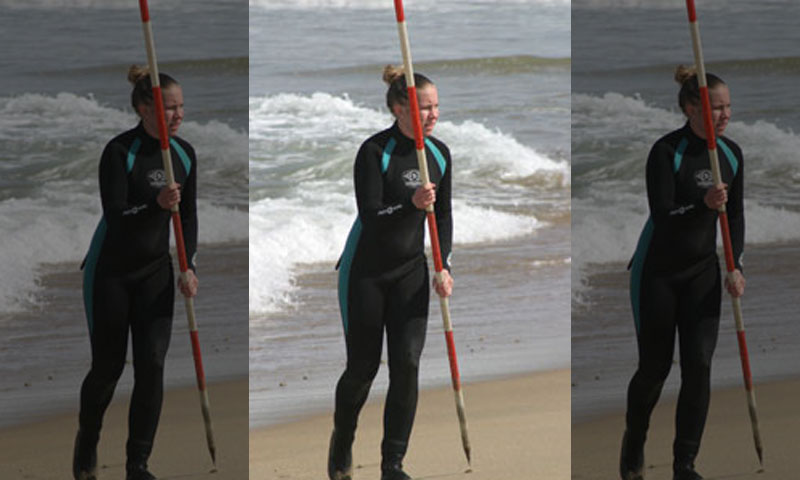Naval Postgraduate School Oceanography doctoral student Jenna Brown has been selected by the Office of Naval Research to receive the highly competitive National Defense Science and Engineering Graduate (NDSEG) Fellowship. Brown successfully competed with more than 2,400 applicants for the prestigious three-year grant, which covers full tuition, fees and a stipend.
The mission of the fellowship program, sponsored and funded by the Department of Defense and administered by the American Society for Engineering Education, is to increase the number and quality of U.S. scientists and engineers. Applicants are evaluated based on a rigorous assessment of their academic ability and future potential in fields of interest to DoD.
“I was surprised and honored to hear that I’d received the award,” Brown said. “I can now support myself while supporting [dissertation adviser Oceanography Assistant] Professor Jamie MacMahan and his great field research program.”
Brown’s doctoral research, which began last summer, is on mapping the three-dimensional structure of rip currents and the exchange of materials in and out of surf zones.
“I really like doing field work, especially under Professor MacMahan, who’s a world leader in rip current research and whose energy and dedication make it both educational and enjoyable,” Brown said. “I like all the instruments and equipment we use to take measurements, and the variety of platforms, like USVs [unmanned surface vehicles] and AUVs [autonomous underwater vehicles] we get to use in the research.”

Oceanography Ph.D. student Jenna Brown holds a beachmarker during a rip current field experiment in the surf zone near the Naval Postgraduate School.
Brown has participated in four rip current field experiments in the past three years under the direction of her dissertation advisor, Oceanography Assistant Prof. Jamie MacMahan: two in Monterey Bay sponsored by ONR, and one each off the coasts of England and France in 2008, sponsored by the National Science Foundation.
“It’s really exciting to conduct this field research, which provides a better understanding of what happens to pollution deposited in the oceans and can be used to quantitatively evaluate human health hazards and protect wildlife and delicate ecosystems,” Brown said.
Brown plans to publish the results of her Ph.D. research in scientific journals and present her findings at international conferences and to health and environmental organizations. “After completing my doctoral program, I want to do research on the transport and exchange between river flows and ocean inlets,” Brown said.
Brown received her Master’s degree in Civil Engineering with a specialization in coastal engineering from the University of Delaware in 2009, where MacMahan was also her thesis adviser. Her B.S. degree, also in civil engineering, is from Ohio State University.
Since the NDSEG Fellowship program’s inception 21 years ago, approximately 3,200 grants have been awarded under selections made by the research offices of the military services.
For more information about this prestigious fellowship program, visit the NDSEG Web site.

